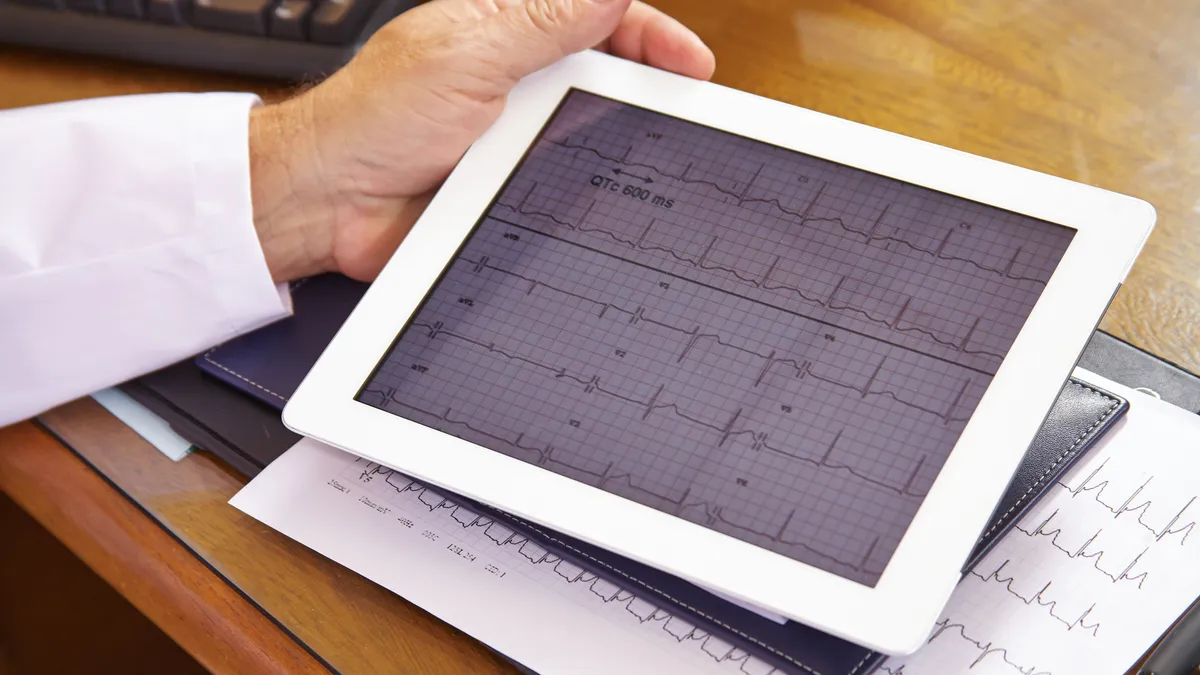Dive Brief:
- A push to develop standards and identify best practices to guide rapid growth in the emerging field of digital therapeutics has attracted the support of 25 tech companies, ranging from Google Health and HP to Livongo, Philips and ResMed.
- The companies have joined an initiative led by the Consumer Technology Association to define performance requirements for digital therapeutics, described by the group as a newer branch of digital health that incorporates software applications into medical treatment.
- The effort comes as FDA moved to lower regulatory barriers during the public health emergency for digital therapeutic devices designed for use in treating psychiatric disorders.
Dive Insight:
Digital therapeutics applications go beyond wellness tracking to support treatments for pain, allergies and mental health conditions. Patient data can be monitored in real time, with applications sometimes used to optimize drug dosages or even replace traditional pharmaceutical treatments.
Before COVID-19, use of digital therapeutics was gaining momentum in facilitating treatments across a range of diagnoses, with investment in the segment growing by 40% annually on average over a seven-year span to top $1 billion in 2018, according to a recent McKinsey research report. But developers sometimes faced challenges accumulating enough clinical evidence to support use of the interventions.
As spelled out in FDA's recent guidance document, regulatory requirements lifted for the duration of the pandemic included the necessity for 510(k) submissions, certain clinical evidence standards, and registration and listing requirements for low-risk technologies. The policy was not expected to create undue risk as long as products are validated, follow cybersecurity best practices, and instruct the user to consult a doctor before use, the agency said.
The CTA said the current challenge for the sector is to set an industry foundation for the common use and application of digital therapeutics and to educate consumers on technologies used for interventions. The group contends the technologies have the potential to improve patient outcomes and lower costs of care.
CTA earlier this year released digital health standards on the use of artificial intelligence in healthcare, performance requirements for physical activity and stress monitoring. The association said it plans to hold a session on digital therapeutics during the Technology & Standards Fall Forum focused on the science and applications of the field.
The Digital Therapeutics Alliance, an industry group pushing integration of evidence-based digital therapeutics into mainstream healthcare, in 2019 released its own code of ethics and list of best practices to guide industry in product development and marketing.
The moves by industry come as the FDA's Digital Health Software Precertification Pilot Program, which counts Apple and Fitbit among its members, continues to be a work in progress. Bakul Patel, associate center director for digital health at FDA, told MedTech Dive in late March the agency is continuing in 2020 to "test and build" the program, and will ultimately need to go to Congress to ask for the legislative authority for what emerges as the program's finalized version.
Digital therapeutics developer Pear Therapeutics announced in late March that its app-based treatment for chronic insomnia received FDA clearance, becoming the first product to be submitted through the 510(k) pathway while also being reviewed as part of FDA's precertification pilot program.










